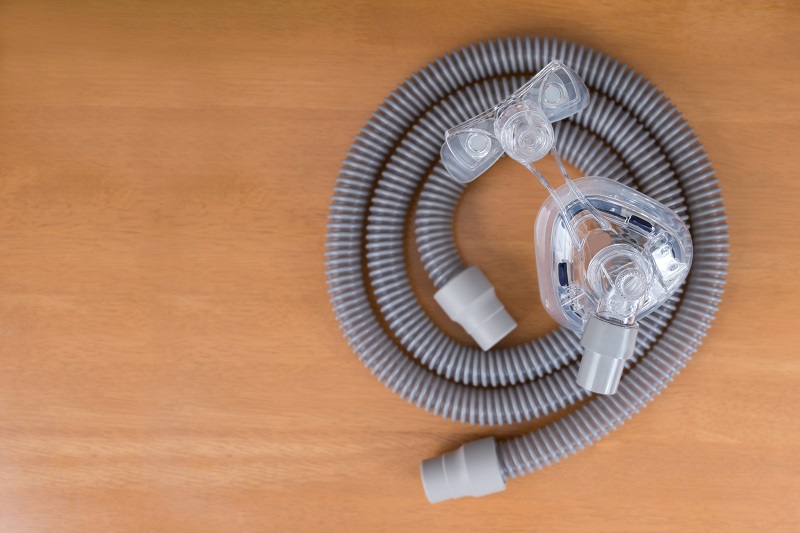Is Magnesium Good For Relaxation & Sleep?

March 25, 2022
Blackout curtains, limiting screen time before bed or cutting down on caffeine, there are tons of recommendations for better sleep hygiene to help with a better night’s sleep, but what about magnesium?
David Leopold, M.D. shares an expert’s take on how to use magnesium for a good night’s sleep.
What is magnesium?
Magnesium is an important element in our body, it can be found naturally in many foods like whole grains and dark-leafy vegetables, as well as in dietary supplements and medicines.
Magnesium is used for many bodily functions; there are at least 300 metabolic pathways that utilize magnesium.
“Like calcium or potassium, magnesium is very central to normal metabolic function – the bodily processes that keep us alive and well,” shares Dr. Leopold. “Although it is so essential, about 65% of people who live in the United States do not meet their dietary requirements for magnesium.”
How can magnesium help with sleep?
“Most people don’t realize how stressed they are, and a huge component of sleep issues are stress related,” explains Dr. Leopold. “If you’re chronically stressed, your body is constantly in a state of fight or flight. When you’re stressed, your body thinks you’re in battle, and it’s not a great idea to fall asleep while in battle.”
“Magnesium is extremely important in regulating functions associated with stress; it helps to regulate the neurotransmitters in our brain that make us more excited or calm down, it acts like a buffer to keep it all in balance,” Dr. Leopold states.
Magnesium can help with sleep by:
- Maintaining a balance of calming neurotransmitters: “Magnesium will make sure there’s a balance of GABA (gamma-aminobutyric acid), for calming, with glutamate for excitement. It buffers that system to make sure there isn’t too much of either one,” explains Dr. Leopold.
- Improves and regulates melatonin production: “Your brain makes the hormone melatonin to help you sleep, and magnesium can regulate that production,” Dr. Leopold says.
What else does magnesium do in the body?
Magnesium plays a role in supporting and maintaining many healthy bodily functions, including:
- Nervous system regulation: The nervous system manages how your brain communicates with the rest of your body. Magnesium can help with anxiety and stress.
- Muscle and nerve function: Magnesium is a natural muscle relaxer. This can help with aches and pains at the end of the day, as well as influence your digestive system. Magnesium also aids with normal bowel movement and the softening of stool – helpful for constipation.
- Energy production: Magnesium is essential in the formation of energy from the sugar in food.
- Building strong bones: Magnesium helps with bone density and can help prevent osteoporosis.
- Normal heart rhythm: Magnesium helps the heart to contract regularly for a healthy heart beat.
Introducing magnesium into your diet
“My first recommendation is always to increase magnesium intake by your diet – eat magnesium rich foods like whole grain cereal, beans, peas, legumes, nuts and leafy green vegetables,” Dr. Leopold adds. “Obviously, you won’t be able to raise magnesium stores immediately just because you had a couple cups of kale or spinach, that’s why we often introduce supplements as well.”
It’s important to start on a low dose of magnesium, Dr. Leopold suggests, “In general, magnesium is very safe, but if you take too much it can cause nausea or diarrhea.”
There are various types of magnesium supplements to choose from, Dr. Leopold recommends two types specifically for sleep and anxiety:
- Magnesium glycinate
- Magnesium citrate
Your daily dosage of magnesium will depend on your age and gender. Always talk with your doctor before adding a new supplement to your diet.
Next Steps & Resources:
- Meet our source: David Leopold, M.D.
- To make an appointment with a doctor near you, call 800-822-8905 or visit our website.
- National Institutes of Health - Magnesium
- National Library of Medicine - The Importance of Magnesium in Healthcare
The material provided through HealthU is intended to be used as general information only and should not replace the advice of your physician. Always consult your physician for individual care.
Find a doctor near me
Can Wearables Help You Sleep Better?

Improve your sleep? Learn how wearables may help. Dr. Pristas shares insights. Get expert advice; call 800-822-8905.
Are Naps Good for You?

Learn about the benefits and drawbacks of napping. Short naps may improve alertness, but don't replace nighttime sleep. Get tips for healthy napping habits.
Find a doctor near me

Suffering from Obstructive Sleep Apnea? Here’s a CPAP Alternative
An innovative implantable treatment for obstructive sleep apnea offers new hope for better sleep.

Can Melatonin Gummies Help Kids Sleep?
Help your child sleep better. Learn about melatonin gummies for kids from pediatric sleep specialists. Get advice & improve bedtime habits.

Should You Consider an At-Home Sleep Study?
At-home sleep study: Improve your sleep & health. Learn about sleep apnea testing & treatment options from experts. Call 800-822-8905.

Can COVID Cause Insomnia?
COVID-19 causing insomnia? Dr. Pristas explains how pandemic stress affects sleep. Learn tips for better sleep; improve your rest tonight.
